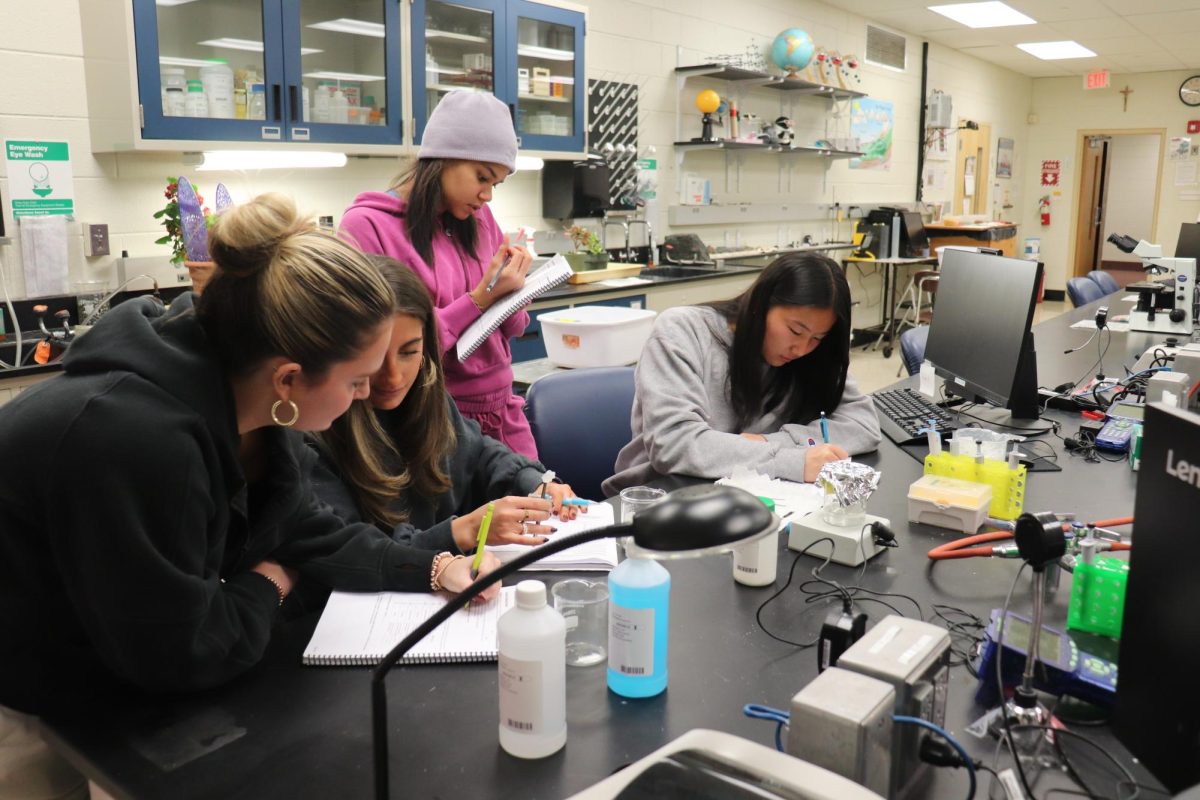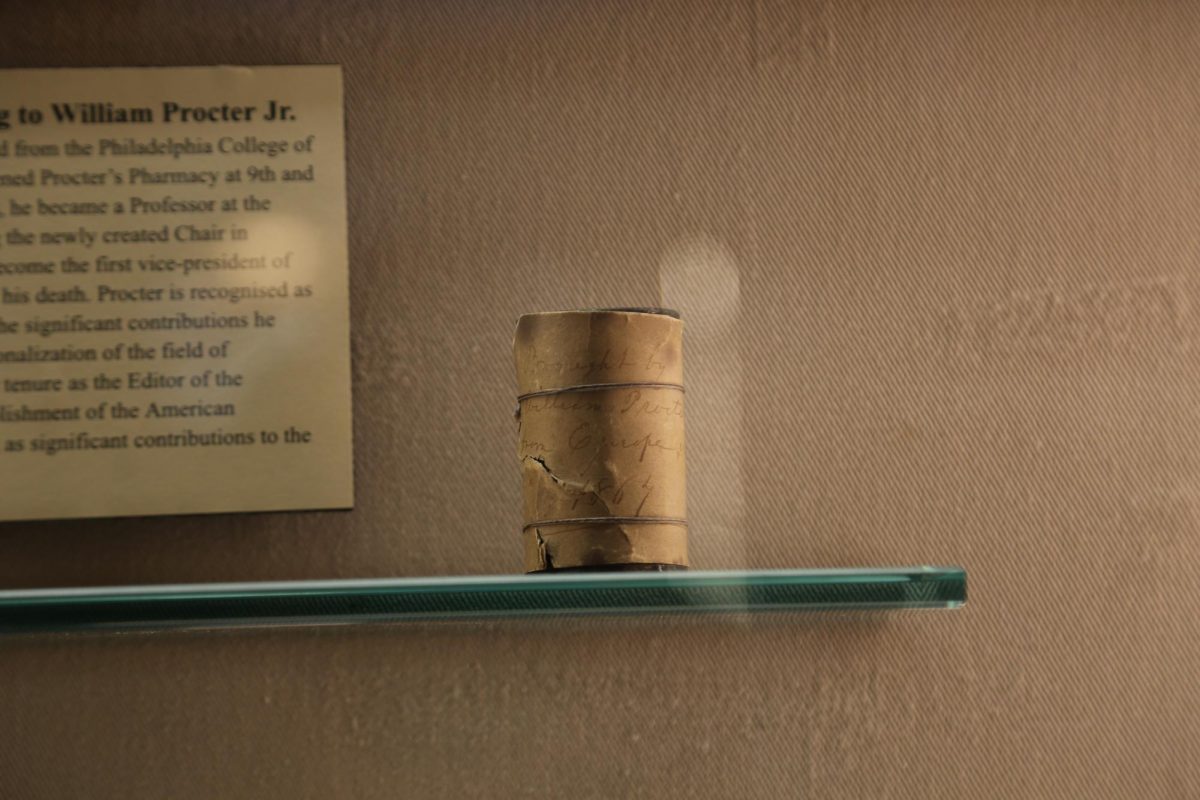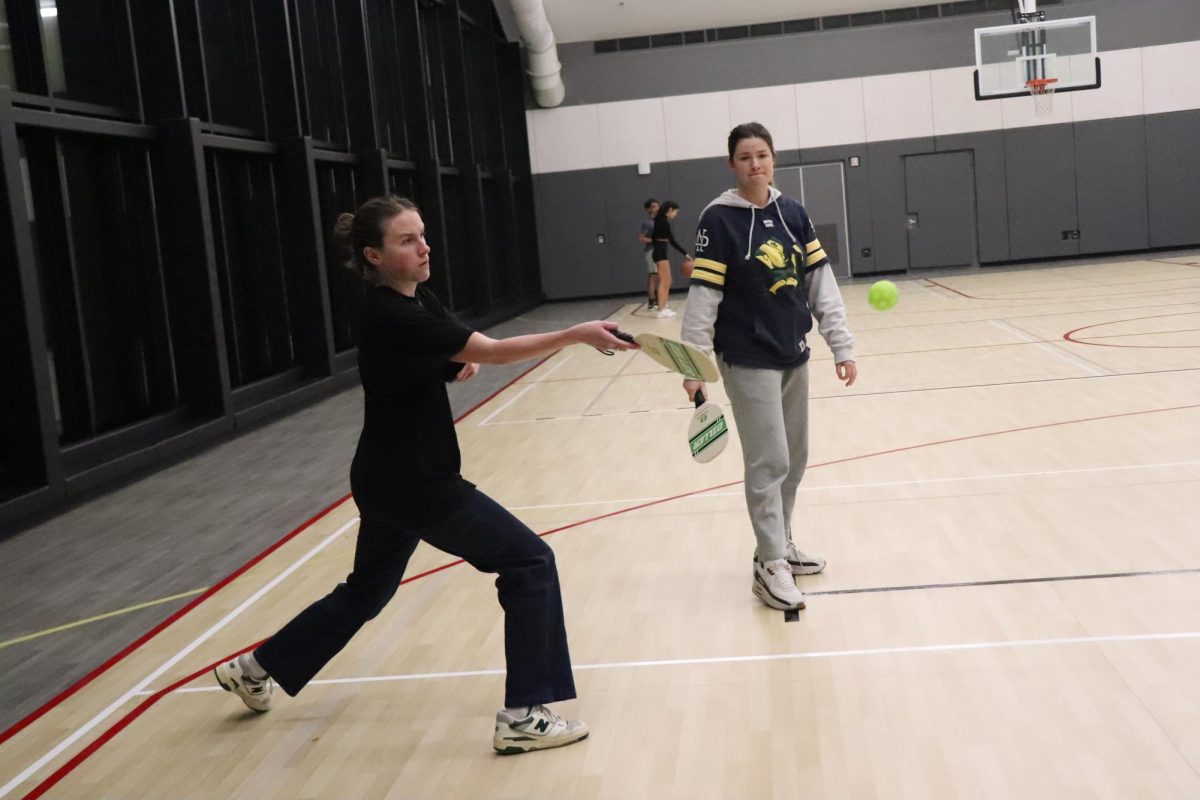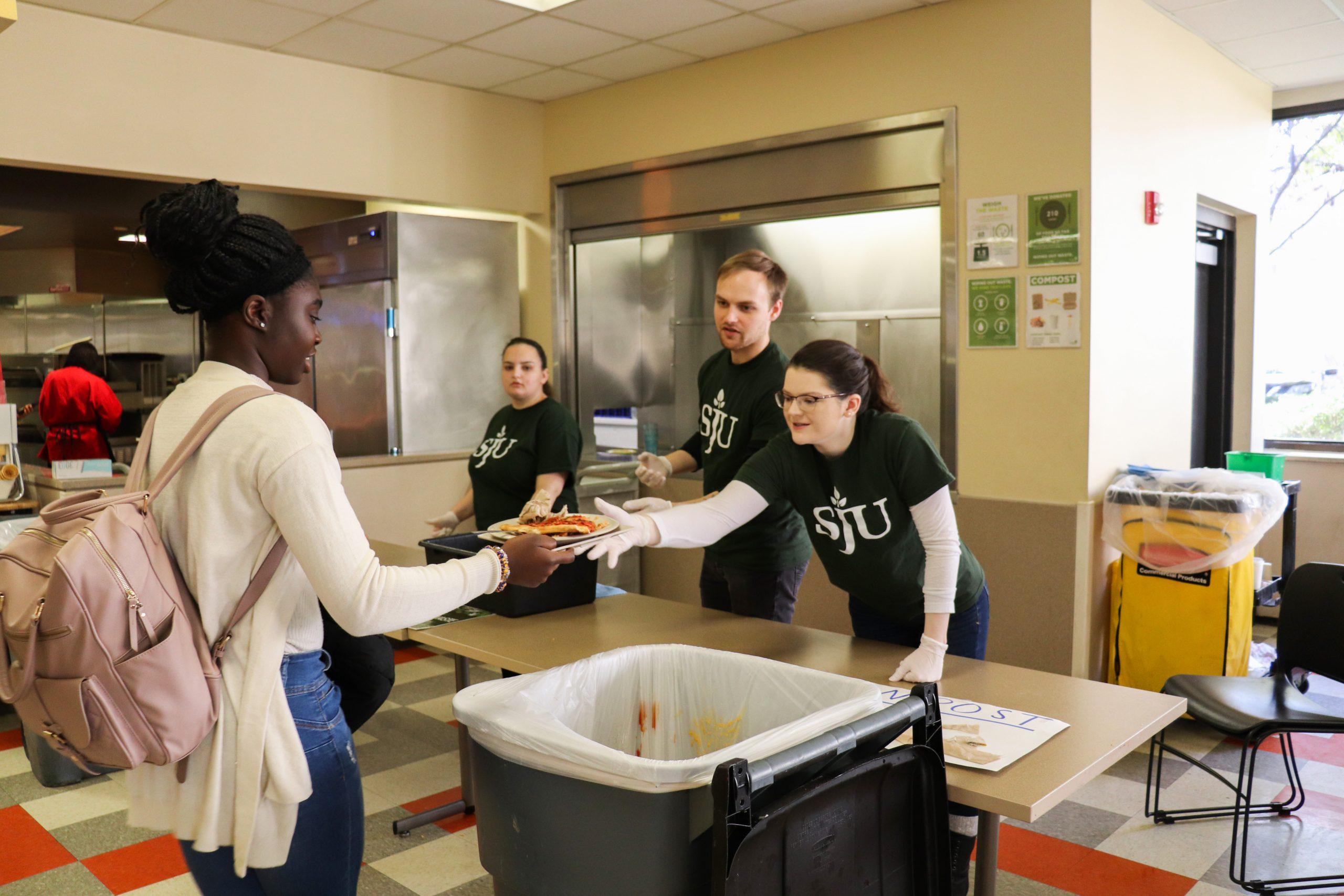At the end of their lunch in Campion Dining Hall last Thursday, St. Joe’s students handed over their bowls and plates, some still piled with uneaten food, to members of the Green Fund.
As part of the club’s Nov. 21 “Weigh the Waste” event, members separated diners’ excess food and napkins into a compostable bin, and empty plastic butter, cream cheese and jelly packets into a recyclable bin.
At the end of the hour-long event, they weighed how much food waste was produced: 40 pounds or an average of 1.3 ounces of waste per person.
One diner, Refatun Momo ’20, acknowledged during the event that students grab more food than they can handle in the dining hall.
“St. Joe’s students, when they get food, it tends to be extra,” Momo said. “Every plate you see has food on it because I don’t think students realize how much they’re going to eat and then they get full and throw the rest away.”
Deirdre Taft-Lockard ’20, co-president of Green Fund, said Green Fund holds this event in Campion Dining Hall because it is a major dining location with heavy foot traffic.
“It gives us a more accurate picture of how much food waste is actually produced on campus,” Taft-Lockard said. “Since it is a central location, it’s a good place to spread awareness about it as well.”
Andrew Rus ’20, member of Green Fund, said he also thinks it’s important to hold the event in Campion Dining Hall because it is a popular location for first-year students.
“I think it’s good to teach them from the start different ways to be more mindful when they throw out food,” Rus said.
This was the second “Weigh the Waste” event of the semester. Another one was held Oct. 24, where Green Fund weighed about 60 pounds of food waste sent to dish return. This waste averaged out to about 1.5 ounces of food waste per person who swiped into Campion Dining Hall during that hour according to Taft-Lockard.
Although the waste reduced by 20 pounds in the most recent event, that number is still large, showing that portion control is a main issue in Campion Dining Hall according to Demetrius Heckstall, food service director of Campion Dining Hall.
Demetrius Heckstall serves as the contact between Green Fund and SJU Dining and helped to make the event possible. He said the dining hall does not offer trays and only provides small plates as an initiative to control portions and reduce the dining hall’s food wastage footprint.
“We serve about 800 to 900 breakfast dishes, 1,100 to 1,200 lunch dishes and 1,100 to 1,200 dinner dishes daily,” Heckstall said. “Just thinking about how much food waste is produced from the consumer side is scary.”
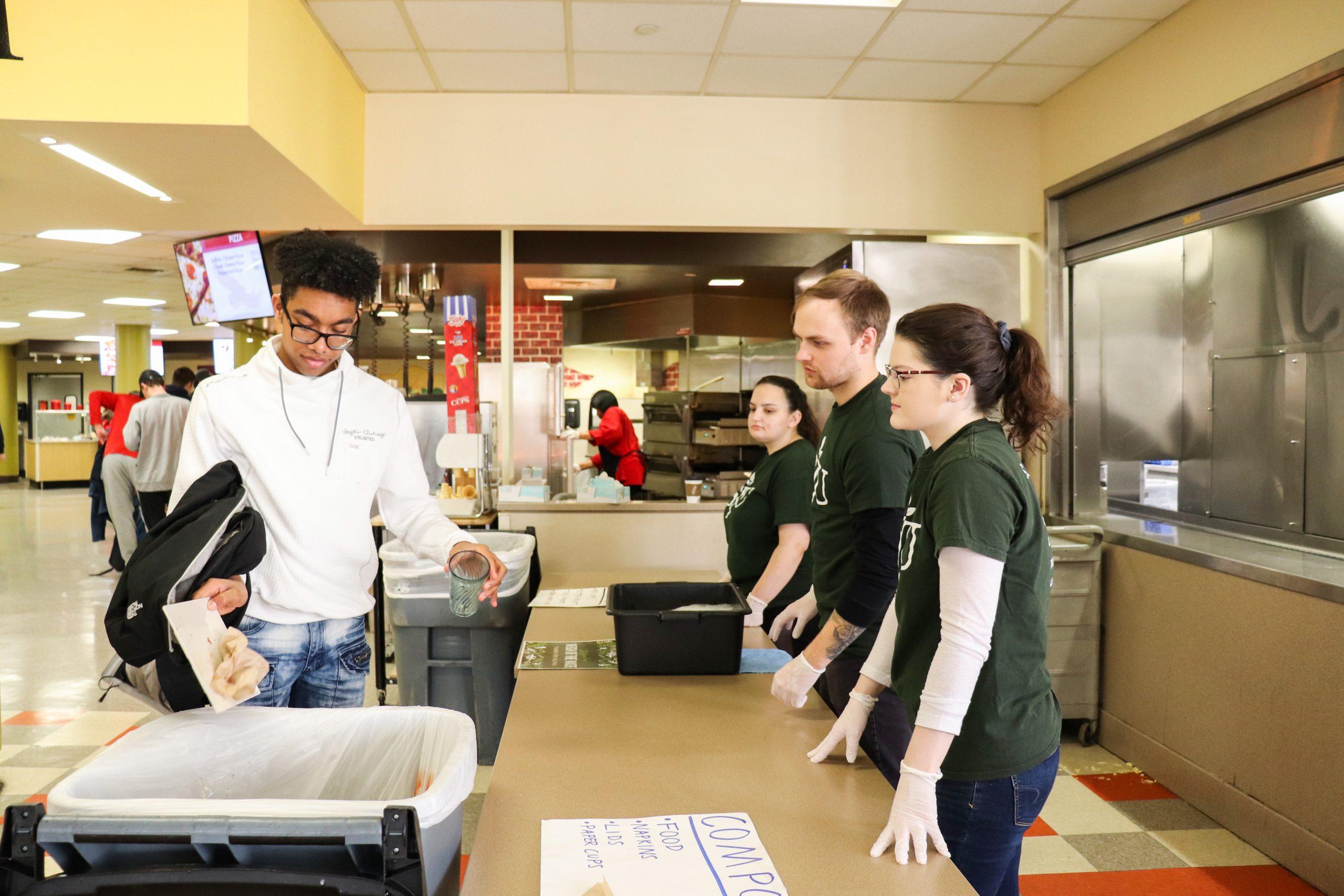
According to estimates by the Food Recovery Network, 22 million pounds of food waste are produced from U.S. college dining halls yearly, contributing to the 130 billion pounds of food discarded each year in the U.S.
College students produce an average of 142 pounds of food waste a year, according to research done by RecyclingWorks, a recycling assistance program.
Taft-Lockard said students can reduce the amount of food waste they produce by simply being mindful and asking themselves questions before selecting food like, ‘Is this an amount I think I can eat?’ or ‘Is there a way I can store this and have it for a later meal?’
“People can get smaller amounts of food at a time, especially if it’s something new they are trying and they’re not sure if they’re going to like it,” Taft-Lockard said. “Then if they don’t end up finishing it, it’s less waste.”
At the end of each “Weight of Waste” event, Heckstall posts a flyer next to the dish return that notes the pounds of food waste in total and per person there was during the event time. This serves as a way to raise to awareness to students as they place their not-so-empty plates in the dish return, he said.
Diner Jeff Hoffner ’20 said the event, and the data collected from it, made him rethink his habits.
“I’ll be honest, I probably do produce a lot of food waste,” Hoffner said. “I can see that with my own eyes. I threw out a lot of food.”
Taft-Lockard said she hopes “Weigh the Waste” continues to spread awareness on the issue and that Green Fund can use this data to create an additional awareness campaign to reduce food waste on campus.
“People won’t feel that guilt coming with all that food if they can try to figure out beforehand ‘Maybe I shouldn’t grab as much of this because I can just go back if I want more of it,’” Taft-Lockard said.




